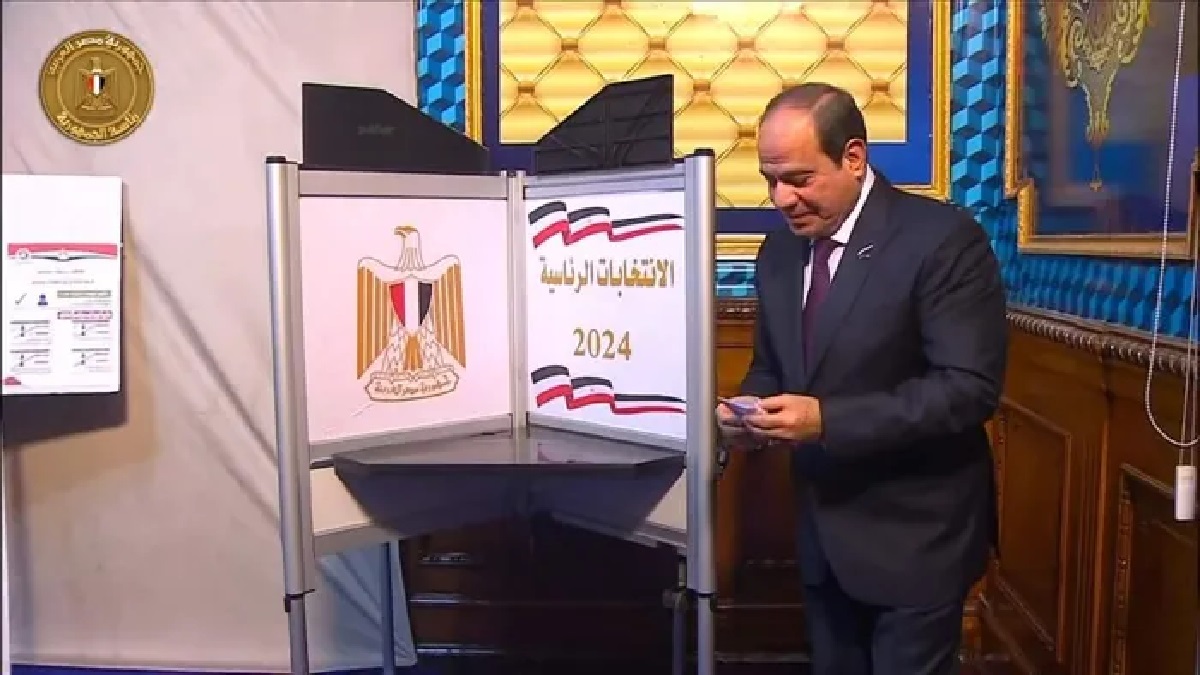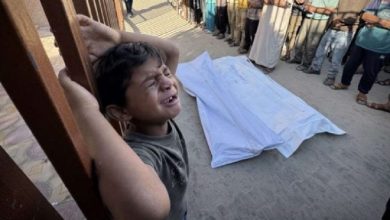Egypt’s Economic Struggles: Sisi’s Third Term Amid Soaring Inflation and Unfulfilled Promises

Watan-Growing Discontent as Sisi Seeks a Third Term”: This is how the British BBC network titled its report on the Egyptian presidential elections taking place today for Egyptians inside the country, describing it widely as a farce.
The report states that with President Abdel Fattah el-Sisi running for a third consecutive term, the deteriorating economy tops the list of complaints for most citizens in the country.
Nadia is one of those struggling to make ends meet, barely earning a living by selling newspapers at a street kiosk. In her small apartment in one of Cairo’s crowded poor neighborhoods, Nadia says she bought meat for the last time three years ago. For her, life has become increasingly unbearable day by day.
With a faint smile and eyes filled with pain, she says, “I feel extreme fear of sleeping sometimes because I know that prices will rise the next morning.
High Inflation Rates in Egypt
The latest official figures reveal that the inflation rate in Egypt reached 38.5% in October, a slight decrease from the previous record of 40.3% in the preceding month. These numbers are unprecedented in the most populous country in the Arab world, and the real inflation rate experienced by ordinary people is often much worse than the government-announced figures.
With the rising prices, Nadia’s income has declined. More than a decade ago, she used to sell nearly 200 newspapers daily, but today, the number does not exceed 20.
Nadia states that the cost of cooking a meal now ranges between 300 and 500 Egyptian pounds (7.70 to 13 pounds sterling; 9.70 to 16.20 U.S. dollars). However, a few years ago, the price was approximately one-sixth of the current amount. She adds, “Even fruits are prohibitively expensive.”
Collapse of the Egyptian Pound
In the past nine months, the Egyptian pound has lost over 50% of its value against the U.S. dollar. With the Egyptian economy heavily dependent on imports, the prices of essential goods have risen significantly, making them unaffordable for many families. The black market for foreign currency has thrived in this environment.
Nadia does not have much hope, and it is evident that she is apprehensive. She says, “No one thinks about the poor. It seems as if we are invisible,” adding with regret, “We have been forgotten.”
Economic Projects Have Devoured the Economy
Since Sisi assumed the presidency in 2014 following the overthrow of the late President Mohamed Morsi, substantial amounts of money have been spent on massive infrastructure projects. Roads have been expanded, bridges constructed, and a new capital, costing billions of dollars, has been established near Cairo, which is scarcely populated.
Critics argue that this “financial recklessness” has drained a significant portion of the country’s economic resources, creating unprecedented levels of debt that have paralyzed the economy.
The government has repeatedly drawn attention to its investments in social welfare programs, aiming to provide a safety net for the poorest and most vulnerable Egyptians. However, people continue to complain that their living conditions are deteriorating.
Official figures reveal that nearly 30% of Egypt‘s 100 million inhabitants live below the poverty line. Since 2016, the government has borrowed over $20 billion from the International Monetary Fund to support its budget.
Simultaneously, austerity measures have been imposed by the government, deemed necessary for “economic reform” in the country. Subsidies have been removed from many essential goods, such as fuel, leading to a surge in prices.






